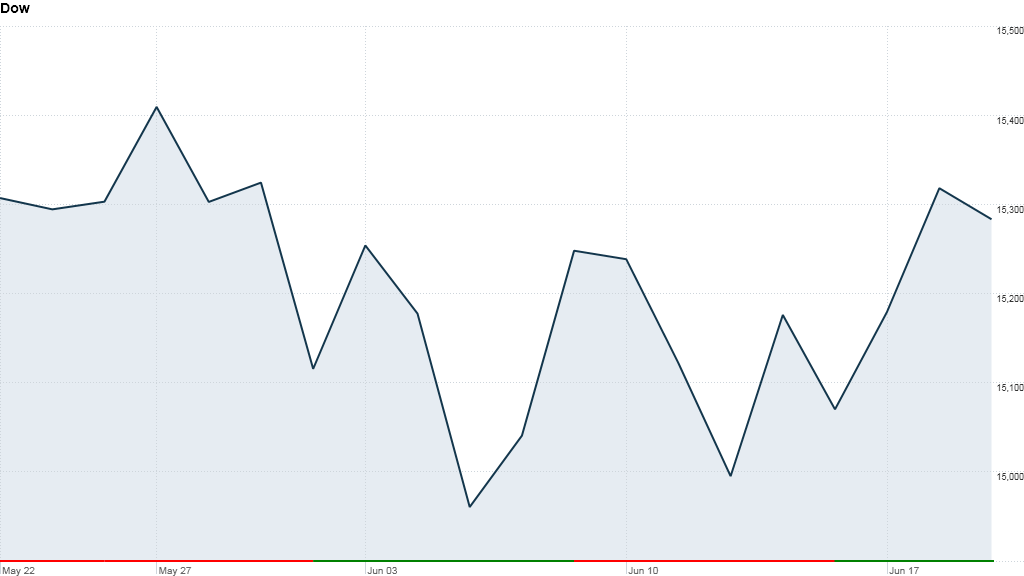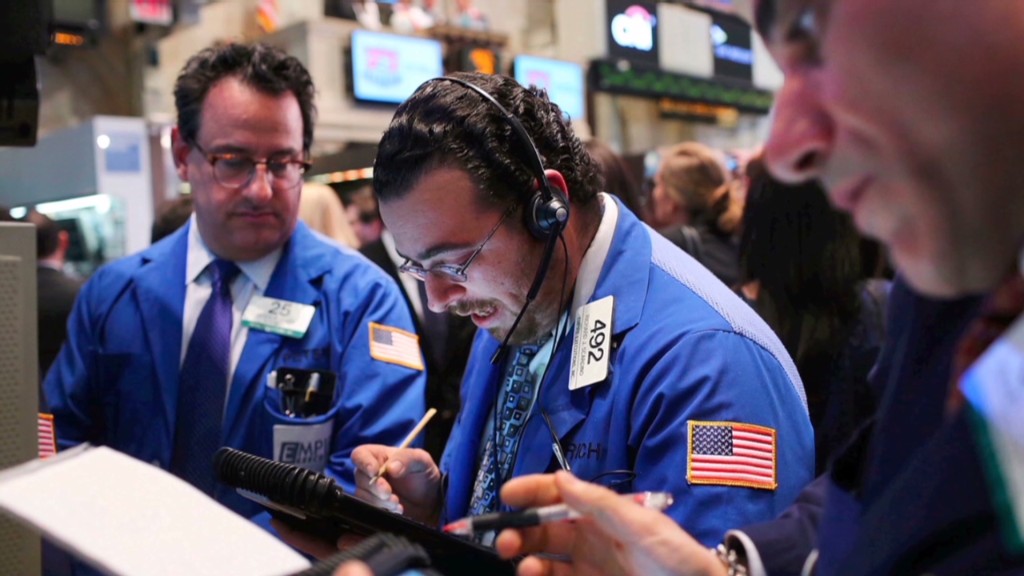
Investors shouldn't worry about when the Federal Reserve is going to pull the plug on its stimulus program.
During a press conference Wednesday afternoon, Fed chairman Ben Bernanke stressed his message: "Our purchases are tied to what happens in the economy," he said. "We have no deterministic or fixed plan."
"I believe this Fed will continue to press its accommodative policy up until the point it is certain that it is not needed," said Jim Keenan, manager of BlackRock's high yield bond fund (BRHYX), during a recent interview.
If the economy continues to improve in line with the Fed's outlook, Bernanke said it would be "appropriate to moderate the monthly pace of purchases later this year," and end the program by the time the unemployment rate comes down to 7%, which the Fed expects will be around mid-2014.
But he repeatedly stressed that if economic growth or hiring fall short of the outlook, the Fed would adjust its policies.
Investors have been in a funk ever since Bernanke first said the central bank could slow down its bond buying program within just "a few meetings." Stocks have been pushed up and down on almost a daily basis to the point where they're little changed from a month ago. Stocks tumbled again Wednesday as investors tried to make sense of the Fed chair's comments.
Related: Fed may slow stimulus in 2013
But since one of Bernanke's key leadership principles is transparency, all investors need to do is keep an eye on the Fed's forecasts to gauge the central bank's next moves, said Keenan.
The Fed's latest forecast for 2013 calls for modest U.S. economic growth -- between 2.3% and 2.6% -- and a decline in the unemployment rate to between 7.2% and 7.3%. The unemployment rate currently stands at 7.6%.
"I think we're a long ways away from the point where economic growth is creating enough jobs to bring the unemployment rate down," said Keenan, noting that the Fed has made it pretty clear it won't leave the economy to fend for itself until growth and improvement in the job market are sustainable. The Fed has repeatedly said interest rates should remain "exceptionally low" as long as the unemployment rate remains above 6.5%.
Doug Elliott, a fellow at the Brookings Institution and former investment banker, said he thinks the Fed will be cautious and thoughtful in its approach and investors will see it coming.
"I basically trust the Fed to get the timing right and to communicate that pretty transparently and in advance," he said. "If investors are surprised, it's their own fault."

Elliott said that while the Fed likely wants to back away from its loose monetary policy sooner rather than later, it will be wary of doing so while the economic recovery remains fragile.
"Every key official of the Fed remembers 1937," said Elliott, referring to the year that the Federal Reserve prematurely reversed its loose monetary policy, which, in conjunction with huge federal spending cuts, sent the economy back into recession.
"Bernanke doesn't want to come close to that," he added. While the Fed has said it maintains the flexibility to either "increase or reduce the pace" of bond purchases in response to economic activity, Elliott said it will likely wait until its "confident that it can maintain a series of moves in the same direction."


